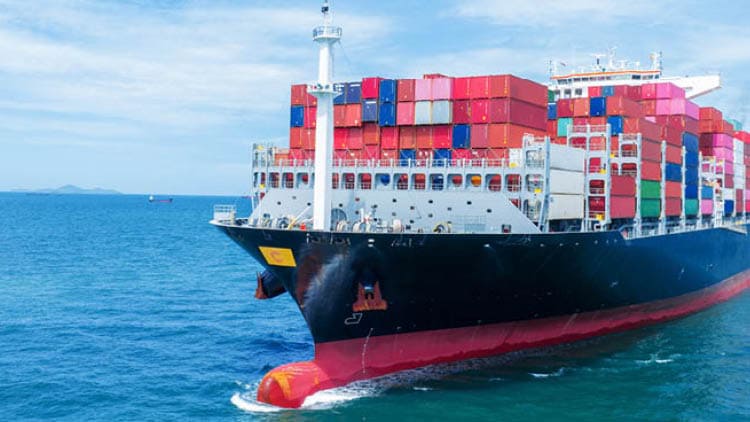Background
With continued developments in US trade policy, please see this week’s key updates in our latest round-up on tariffs, global tax and beyond.
The week in summary
EU – US Trade Deal Proposal
As reported on Wednesday evening, the EU and US are getting closer to a trade deal which would see a baseline rate of 15% applied to most imports from the EU to the US. This rate would mirror the deal which was struck with Japan and may include exceptions for certain products, including aircraft, medical devices and alcohol, according to EU diplomats.
While this is a positive step, caution should be exercised as no deal has yet been agreed, and any proposal must be approved by President Trump. Additionally, the finer details of exempted products will only become clear once the text of any deal is published.
EU Prepares Response as Trade Talks with Washington Falter
Notwithstanding the possible progress on an EU – US trade deal, the European Union continues to harden its stance on potential countermeasures against the United States, should a trade deal not materialise over the coming days and weeks.
On Wednesday, the EU warned it could levy €93 billion in tariffs on a wide range of US goods, in a single sweeping move, unless President Trump agrees to a trade deal by the end of the week. The EU package of tariffs includes the original countermeasures to the steel and aluminium tariffs, on €21 billion of US goods, including poultry and alcohol, that is currently suspended until August 6. The bloc must still decide on a further set of countermeasures on €72 billion of US exports, which has included the automotive and aircraft industry. Trade spokesperson for the European Commission, Olaf Gill, said
“The EU’s primary focus is on achieving a negotiated outcome with the US,” adding that it would “continue in parallel to prepare for all outcomes”. To make countermeasures “clearer, simpler and stronger we will merge lists 1 and 2 into a single list”
If agreed by EU member states, through a vote expected in the coming days, the €93bn of counter-tariffs could be imposed from 7 August, should no trade deal with the US be agreed.
In addition to this, a growing number of member states are now weighing the use of expansive "anti-coercion" tools. These measures could allow the EU to impose restrictions on US service providers or limit American access to public procurement markets should negotiations fail to yield a satisfactory outcome.
European Commissioner for Trade Maroš Šefčovič, who previously warned that a 30% tariff would "effectively shut down" transatlantic trade, delivered a stark update on the negotiations to EU envoys on Friday. According to diplomats, US counterparts have proposed a range of divergent solutions, including a baseline tariff rate that could exceed 10%. One diplomat remarked:
"Each interlocutor seemed to have a different approach. No one can say for certain what would ultimately gain Trump’s approval"
Meanwhile, the likelihood of easing or eliminating the existing US tariffs (50% on steel and aluminium, and 25% on cars and car parts) appears increasingly remote.
The US has reaffirmed its intention to enforce higher tariffs on EU imports starting 1 August, as negotiations between the two sides remain unresolved. US Commerce Secretary, Howard Lutnick, expressed optimism about reaching a trade agreement with the EU but made clear that the deadline for implementing a baseline 30% tariff remains unchanged, stating “That’s a hard deadline—so on August 1, the new tariff rates will take effect”.
While emphasising the firmness of the deadline, Secetary Lutnick also left the door open for continued dialogue beyond that date.
“These are the two largest trading partners in the world, and they’re still talking. I’m confident we’ll reach a deal, nothing prevents countries from continuing discussions after August 1, but they will begin paying the tariffs from that date onward.”
US-Japan Trade Deal Announced
President Donald Trump has struck a new trade agreement with Japan that imposes a 15% tariff on Japanese imports to the US while securing a landmark $550 billion (€468.74 billion) investment commitment from Tokyo aimed at boosting economic activity within the United States.
The deal finalised during a 75-minute meeting in the Oval Office with Japan’s chief trade envoy, spares Japan from a looming 25% tariff that was set to take effect next week. Trump hailed the agreement as a “great deal for everybody” during a White House event on Tuesday evening.
Under the terms, Japanese automobiles and components will face the same 15% tariff rate as other Japanese exports. In return, Japan has agreed to accept US-built vehicles that meet American safety standards without imposing additional regulatory hurdles—potentially opening the door for increased US auto sales in Japan.
Market Reactions to Escalating EU–US Trade Tensions
Since April, a 25% tariff has been levied on cars imported into the United States, a move that has sent shockwaves through global automotive supply chains. Some manufacturers, including Jaguar Land Rover (JLR), have temporarily halted exports to the US as a direct consequence, as reported in Reuters.
Stellantis, the automotive group behind brands such as Vauxhall, Jeep, and Fiat, has revealed, in its preliminary figures for the first half of 2025, that tariffs imposed by US President Donald Trump have already cost the company €300 million. The financial impact stems from disrupted trade flows and the cancellation of planned production in response to the tariffs.
Stellantis, which owns 14 brands including Alfa Romeo, Maserati, Citroën, Chrysler, and Dodge, reported a 25% decline in shipments to North America during the second quarter of 2025 compared to the same period last year. Overall sales fell by 10%, according to preliminary figures for the first half of the year.
Irish Reaction
The Irish Government’s plans to inject an additional €9.4 billion into public services, tax reductions, and infrastructure projects next year may be reconsidered if the US imposes tariffs on EU imports, Ministers Paschal Donohoe and Jack Chambers warned on Tuesday.
Despite the potential economic headwinds, the Ministers, alongside Taoiseach Micheál Martin and Tánaiste Simon Harris, reaffirmed their commitment to safeguarding capital investment. However, the ambitious agenda was overshadowed by the looming threat of a transatlantic trade dispute. Both Mr Donohoe and Mr Chambers acknowledged that the risk of US tariffs could force a revision of the €9.4 billion budget package set to be unveiled in October.
In the event that the US imposes steep tariffs, the Government would “recalibrate its fiscal strategy” and scale back the planned budget package to maintain stability in the public finances, Minister for Finance Paschal Donohoe said.
AstraZeneca Unveils $50 Billion US Investment Amid Tariff Threats
AstraZeneca has announced plans to invest $50 billion (£37 billion) in the United States by 2030, marking one of the largest commitments yet by a pharmaceutical company as the industry braces for potential tariffs under President Trump’s trade agenda.
The move comes as President Trump threatens to begin imposing tariffs on pharmaceutical products from 1 August, starting at a lower rate and then rising to 200% over the course of 12 to 18 months should companies not relocate their operations to the US;
“probably at the end of the month, and we’re going to start off with a low tariff and give the pharmaceutical companies a year or so to build, and then we’re going to make it a very high tariff”
US Commerce Secretary, Howard Lutnick, stated that the proposed tariffs are aimed at reducing the country’s dependence on foreign pharmaceutical products, framing the policy as a national security and supply chain resilience measure, stating,
“We are proud that AstraZeneca has made the decision to bring substantial pharmaceutical production to our shores. This historic investment is bringing tens of thousands of jobs to the US and will ensure medicine sold in our country is produced right here”
We’re here to help you
Keeping up to date with US trade policies, trade agreements and new and existing tariff reviews which may lead to further tariff measures is crucial to assessing the risk to your supply chain and the impact these tariffs may have. Understanding your product portfolio and the impact that tariffs may have on your imports is an important first step. We are here to support your business with this analysis and navigating these choppy waters.
Specialist Tax Services
Helping businesses navigate risks and realise opportunities.
Contact us












Menu